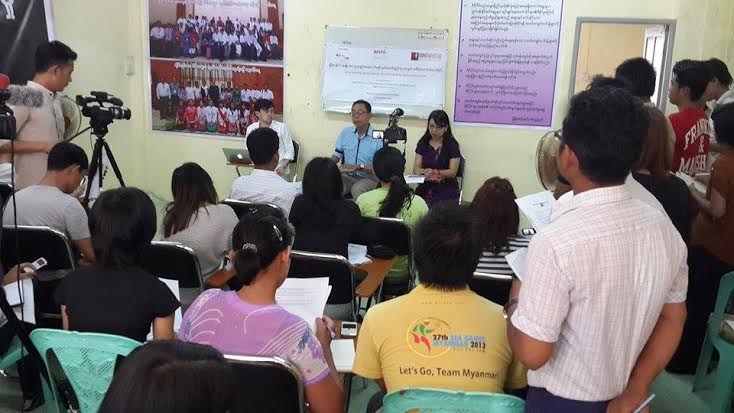Posts Tagged ‘Rakhine’ (5 found)
International NGOs Urge Ban Ki-moon To Negotiate Aid Access To Rakhine State, Myanmar (Burma)
Thirty seven international humanitarian aid and advocacy organisations have written today to the United Nations Secretary-General, urging him to give his “personal attention” to the humanitarian crisis in Rakhine State, Myanmar (Burma) and to take “a personal lead” in negotiating for humanitarian access to all areas of Rakhine State […]
• • •Hugo Swire Raises Concerns with Burmese Ambassador
Foreign Office Minister for Asia Hugo Swire has urged Burma to act swiftly to tackle the root causes of the humanitarian crisis in South East Asia, with thousands of people stranded at sea in desperate conditions […]
• • •Burma: Action Urged On Stranded Rohingya Refugees
Christian Solidarity Worldwide (CSW) has called on the British government to press for EU Foreign Ministers meeting today to discuss the case of Rohingya refugees who are currently stranded in the Andaman Sea […]
• • •Myanmar: Free Prisoners of Conscience in Rakhine State End Ongoing Persecution of Rohingya
(SITTWE—March 14, 2015) The government of Myanmar should immediately and unconditionally release a group of five Rohingya prisoners of conscience being held in Sittwe prison, Rakhine State, Fortify Rights said today. The group includes three prominent Rohingya community leaders imprisoned earlier this week […]
• • •The Myanmar National Human Rights Commission Continues Failing to Deliver
 A report authored by Burma Partnership and Equality Myanmar was launched on 25 September 2014 in Rangoon revealing the continuing ineffectiveness of the Myanmar National Human Rights Commission (MNHRC) as well as the lack of independence from the government. The report was launched on the same day that a reshuffle of the members of MNHRC was announced by the government, which came as a complete surprise to civil society organizations due to the lack of consultation.
A report authored by Burma Partnership and Equality Myanmar was launched on 25 September 2014 in Rangoon revealing the continuing ineffectiveness of the Myanmar National Human Rights Commission (MNHRC) as well as the lack of independence from the government. The report was launched on the same day that a reshuffle of the members of MNHRC was announced by the government, which came as a complete surprise to civil society organizations due to the lack of consultation.
Released at the Myanmar Journalists Network in Rangoon, Burma: All the President’s Men, contributed to the annual Asian NGO Network on National Human Rights Institutions (ANNI) Report on the Performance and Establishment of National Human Rights Institutions in Asia (2014). The report analyzes the Myanmar National Human Rights Commission Law 2014 enacted in March this year (enabling law) that institutionalizes the mandate of the MNHRC. The report finds that the law does not guarantee independence from the government and in particular, the president’s office. In contravention of international standards on national human rights institutions, namely the Paris Principles, the selection process does not adequately consult with civil society. As the report points out, “It is up to the selection board to come up with procedures for short-listing candidates, yet the enabling law itself should set out the process/procedure for selection, with consultations with civil society.” The members of the MNHRC are actually chosen by a selection board of ten, five of which are from the government or are government-affiliated. The enabling law states that two members of this board are to come from civil society organizations and a further two are to be MP, yet there is no transparency regarding the procedures under which the two MPs are chosen. Additionally, the chosen civil society members to the selection board are restricted to registered civil society only, thus excluding many outspoken and critical political and human rights groups who feel they cannot register under the current climate […]
• • •








 All posts
All posts